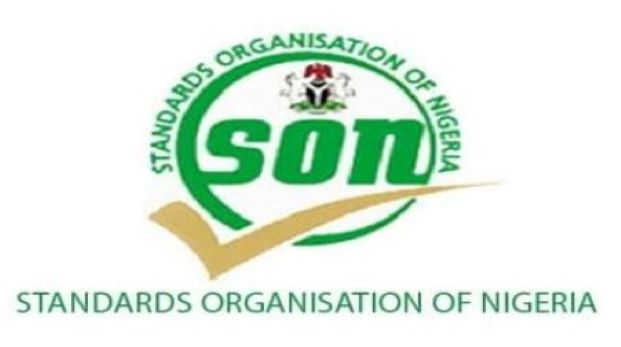General News
Marginal Field Operators Warn of Crude Oil Production Crash

Crude theft may wreck the marginal field operation in Nigeria’s multi-billion dollars oil and gas industry if nothing urgent is done, operators of the marginal fields cried out on Monday.
18 of the 24 marginal fields awarded before 2007 are not producing as at today, and operators of these fields who are indigenous players said at the pre-conference workshop of the 31st Annual International Conference of the Nigerian Association of Petroleum Explorationists (NAPE) that some of the six fields on production are being seriously hit by crude theft.
Abdulrasaq Isa-Kutepa, chief executive of Walter Smith, an operator, said in a paper at the pre-conference that his small company had lost $50 million between January and November, 2013 to shut down of Trans Niger Pipeline (TNP) due to crude theft.
“Our production figures are hampered by crude oil theft. We had production shut down of 120 days in 2012 due to this challenge. In this 2013 we already lost 120 days.
“As I am talking to you we are not producing due to the shutdown of TNP. We lost almost $50 million this year to this persistent shutdown of TNP,” he said.
Corroborating Isa-Kutepa’s view, Uju Ifejika , CEO of Brittania U, operator of Oil Mining Lease (OML) 90, , said as that was not enough trouble, banks are holding back funding for developing the marginal field, which is partly responsible for the poor performance of marginal fields operation.
“It is a thing of shame that Out of the 24 fields that are marginal only, six to seven (onshore) are producing. The worse scenario is the bid round of 2007. Out of this one no single marginal field awarded in 2007 is producing.”
Reacting to this submission, Ladi Balogun, CEO of First City Monument Bank, said banks find it difficult to finance projects with nothing to show in terms of exploration.
According to Balogun, who was represented by Akeem Adedeji, “it is only the 10 per cent equity in the loan assets that is being owned by the bank, the remaining 90 per cent is owned by the deposits who you, as a bank, must pay back their deposits at the end of the year with interests.”
General News
FG Halts Controversial FRC Dues amid Industry Outcry

Federal government has temporarily suspended the controversial annual dues imposed on public interest enterprises by the Financial Reporting Council (FRC) after fierce opposition from businesses.

Jumoke Oduwole, minister, Industry, Trade, and Investment, announced the decision during a Ministerial Consultative Meeting in Abuja on Wednesday.
The move follows mounting pressure from private sector groups, including the Nigeria Employers’ Consultative Association (NECA) and the Manufacturers Association of Nigeria (MAN), who slammed the Financial Reporting Council (Amendment) Act 2023 for burdening companies with excessive fees.
The Act mandates cumulative annual charges for non-listed entities and imposes a harsh 10% monthly penalty on unpaid dues, compounding until full payment, a provision that sparked widespread backlash.
At the meeting, major industry players like NECA, MAN, the Nigerian Association of Chambers of Commerce (NACCIMA), oil producers, and telecom operators warned that the fees would cripple businesses already struggling in a tough economy.
Oduwole clarified the suspension, stating, “The government has decided to direct the Financial Reporting Council to pause in the implementation of the new annual dues. You know that I am a lawyer, and a suspension request by the organised private sector would be in contravention of legislation duly passed by the National Assembly. A pause is an administrative process simply to review, in line with what we discussed today.”
She assured stakeholders that the halt would last no longer than 60 days, with a technical working group—including FRC officials and private sector representatives—set up to reassess the policy.
“We are a listening administration. The private sector has requested a range from three months to an indefinite suspension. We are not going to do that. So, at the most, 60 days is in my estimate. We are going to set up a technical working group comprised of the FRC and the organised private sector who have formally written in, and this will be reviewed,” Oduwole emphasized.
General News
SON Pledges to Standardize Made-in-Aba Products

The Standards Organisation of Nigeria (SON) says it is intensifying efforts to standardise locally manufactured products, including Made-in-Aba brands, in order to enhance both local and international acceptance.

Aharanwa Chuks, Director of Region (South East), SON, communicated this in an interview with the News Agency of Nigeria (NAN) on Wednesday in Abuja.
Chuks said through the Mandatory Conformity Assessment Programme (MANCAP), SON ensured that all Nigerian-made products conformed to the relevant Nigerian Industrial Standards (NIS).
According to him, MANCAP involves direct engagement with manufacturers to certify that their products meet established quality benchmarks.
“This process includes inspecting production facilities, sampling products and testing them against NIS requirements.
“Successful compliance results in the issuance of the MANCAP certification, signifying adherence to quality standards.
“In Aba, SON has been proactive in educating manufacturers about standardization.’’
The director said SON also conducted stakeholder interactions; gathering manufacturers from various sectors to provide guidance on producing goods that met both local and international standards.
“For instance, leather manufacturers in Aba have been sensitized on standardization practices to enhance the global competitiveness of their products.
“Manufacturers are encouraged to collaborate with SON to obtain MANCAP certification, ensuring their products are not only marketable within Nigeria but also competitive internationally.
“This initiative aims to boost consumer confidence and promote the acceptance of Made-in-Aba products globally,” Chuks said.
General News
EFCC Arrests 133 @ Ponzi Scheme Training Academy

Operatives of the Economic and Financial Crimes Commission (EFCC), has busted a Ponzi Scheme Academy and arrested 133 suspects in Abuja.

They were arrested at the Compensation Layout in Gwagwalada area of the Federal Capital Territory, FCT, Abuja, following actionable intelligence on the existence of the Academy.
The Academy, named Q University (a.k.a Q-Net) is in the business of recruiting gullible young Nigerians who are trained to recruit more gullible citizens into the scheme with the promise of getting unrealistic profit returns.
The suspects are enrolled into a training codenamed: “Special Training for New Generation Billionaire” and brainwashed to believe that they would graduate into the league of billionaires.
They got into the training by obtaining a form the promoters called “Independent Representative Application Form” with promotional slogans such as: “I’m a Champion” “I’m Unstoppable”, “I’m Infinity”, among others.
The EFCC carried out the operation in collaboration with officers and men of 176 Guards Battalion, Nigerian Army.
Items recovered from the suspects include phones, computers and other electronic gadgets.
They will be charged to court as soon as investigations are concluded.

 News2 days ago
News2 days agoPolice Arrest 4 Bank Staff over Alleged ₦270m Fraud, Money Laundering

 E-Financial2 days ago
E-Financial2 days agoUBA Grows Profit to ₦804Bn, Declares N3 Kobo Final Dividend

 E-Business2 days ago
E-Business2 days agoNIMC to Prosecute Nigerians Printing ‘NIN Cards’, Says Only Slip is Legal

 Telecom2 days ago
Telecom2 days agoOpen Access Fabrics Set to Drive Connectivity to Achieve a Digital Economy

 E-Business2 days ago
E-Business2 days agoUnleashing Nigeria’s Business Potential: The Cloud as Catalyst for Growth

 E-Business1 day ago
E-Business1 day agoFG Plans to Link Social Register to NIN for Humanitarian Crisis

 Telecom2 days ago
Telecom2 days agoMTN Nigeria and Pan-Atlantic University Invite Media Practitioners for 4th Media Innovation Programme

 General News2 days ago
General News2 days agoFG, UK FCDO, and Ghana Partner to Launch Sankore















